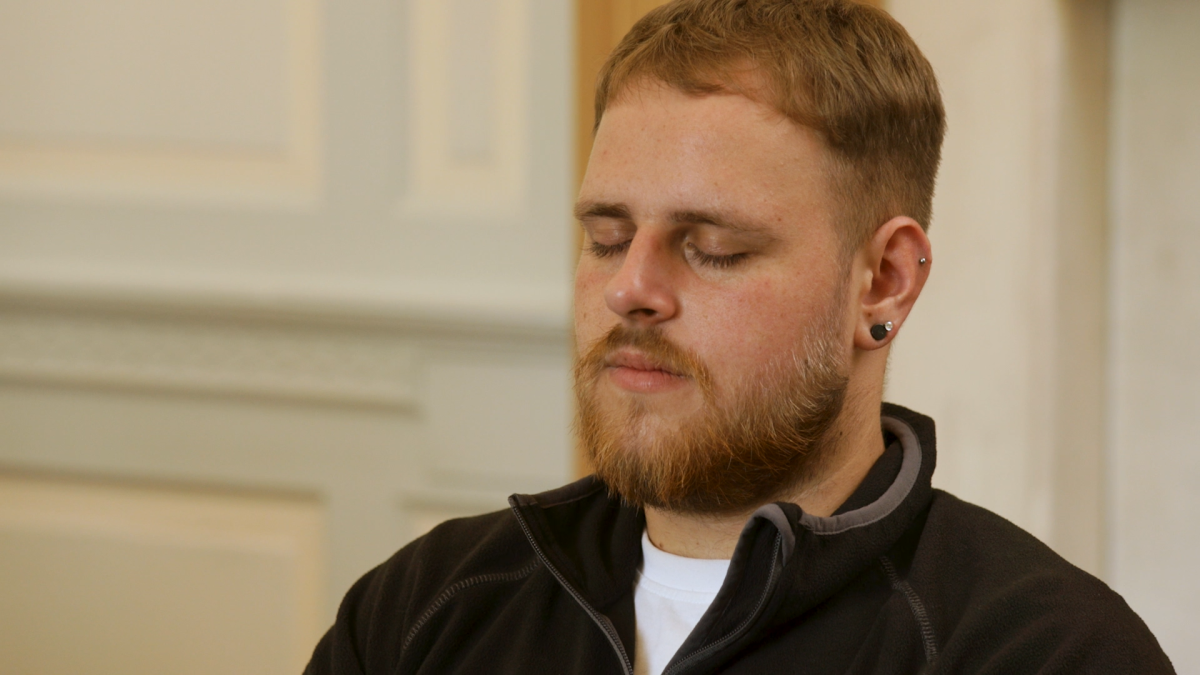
Are you concerned about your heroin use?
Table of Contents
Key Takeaways
- Heroin is an illicit, highly addictive opioid drug.
- Individuals receiving prescription opioids, such as oxycodone or fentanyl, can become addicted.
- Heroin addiction is a substance use disorder, recognised by the Diagnostic and Statistical Manual of Mental Disorders, Fifth Edition (DSM-5).
- Chronic, repeated use of heroin leads to changes in the brain which result in tolerance and dependence – Withdrawal symptoms can occur when heroin is stopped abruptly.
- Medically managed heroin detox can be an important first step in recovery.
- Medical and psychological treatments are recommended to promote a full and long-lasting recovery.
Heroin Overview
Heroin is a highly addictive opiate drug derived from morphine and other substances. Morphine comes from the opium poppy flower and is used medically for pain management.1 Heroin rapidly binds to receptors in the brain, bringing about a rush (surge of pleasure) and influencing brain and nerve functions.2
Under the Misuse of Drugs Act 1971, heroin is recognised as a Class A drug, meaning that it is illegal to possess, produce or sell heroin in the UK.1
Heroin is typically sold as a white powder (pure heroin) or darker-coloured powder (impure heroin). Pure heroin can be smoked or snorted. Impure heroin tends to be dissolved and diluted for injection into the skin, veins or muscle.2
Heroin has numerous street names, including horse, smack and brown.3
Individuals receiving prescription opioids, such as oxycodone or fentanyl, can become addicted. This can lead to heroin use as heroin can be cheaper and easier to obtain than prescription opioids.1,2
Sadly, heroin use disorder is dangerous and can have fatal consequences. In the UK, heroin-related deaths have more than doubled since 2012.1

Download Our Brochure
Effects of Heroin Abuse
Short-term Effects of Heroin on the Body
Heroin use can produce an array of immediate and long-term physical and psychological effects. Immediate effects include a rush, or intense pleasure, brought about by the binding of heroin to opioid receptors in the brain. The intensity of this rush is influenced by the amount of heroin used and the speed at which it enters the brain and binds to receptors.
Other immediate effects can include:
- Warm, flushed skin.
- Dry mouth.
- Heavy sensation in the limbs.
- Nausea and/or vomiting.
- Extreme itching.
Following these immediate effects, users are typically drowsy for several hours following heroin use. Cognitive functions are slowed, as well as heart rate and breathing. Reduction in breathing rates can be dangerous; leading to coma, permanent brain damage or death.2

Long-Term Effects of Heroin Abuse
When using heroin, you may immediately notice the following effects:
- dizziness/drowsiness.
- flushed skin.
- dry mouth/heaviness in limbs.
- itchiness.
- pain relief/nausea or vomiting.
Heroin addiction, also known as heroin use disorder or heroin dependence, is a substance use disorder that can develop with repeated use.1
Substance use disorders (SUDs) are patterns of symptoms occurring from continued use of a substance despite negative consequences. The Diagnostic and Statistical Manual of Mental Disorders (DSM-5) criteria for SUDs feature four primary categories: impaired control, risky use, physical dependence and social problems. SUDs range in severity from mild to severe, depending on the number of symptoms experienced.4
Chronic heroin use leads to changes within the brain that can affect an individual’s behaviour, stress response and ability to make decisions.
Repeated heroin use over an extended period of time can result in tolerance and physical dependence. These are hallmarks of heroin addiction and lead to an individual having to take increasing amounts of heroin to produce the same effects. As the body has adapted to the presence of heroin, stopping use can result in withdrawal symptoms. These symptoms can occur within a few hours from last use and include restlessness, vomiting, cold flushes with goosebumps (i.e., cold turkey) and muscle and bone pain.2
What Causes Heroin Addiction?
Understanding the causes of heroin addiction is crucial in providing effective treatment and support. Heroin addiction, like other substance use disorders, arises from a complex variation of factors. Genetic, environmental and psychological factors can all impact an individual’s susceptibility to opioid addiction.
Genetic and Biological Factors
Individuals with first-degree relatives who have a substance use disorder are more at risk of developing addiction to opioids, such as heroin. Deficiencies in chemical messengers in the brain, such as dopamine, are also linked to opioid use disorders.
Addiction can lead to changes in brain function, particularly in the reward system. This means that individuals who develop heroin addiction can experience intense cravings and compulsively use the drug despite harmful consequences.
Environmental Factors
Addiction to opioids, such as heroin, can occur in anyone, regardless of educational or socioeconomic background. Those at increased risk include individuals who have been exposed to opioid use through their peers. Individuals who have been prescribed opioids for pain relief are also more susceptible to developing addiction.
Psychological Factors
A history of untreated depression, anxiety, post-traumatic stress disorder (PTSD) or childhood trauma can increase the risk of developing heroin addiction.5
At Castle Craig, we aim to help you identify and find acceptance in these underlying causes. By offering a personalised and comprehensive treatment approach, we can help to address the biological, psychological and social aspects of heroin addiction. Our goal is to empower individuals with the understanding and tools they need to overcome addiction and reclaim control over their lives.
Heroin Tolerance and Dependence
Drug tolerance occurs when changes in the brain’s functioning mean that more of the drug is needed to produce the same effects. This leads to an individual taking increasingly higher doses of heroin to achieve the same pleasurable effects.
Following the development of tolerance, an individual can become dependent on heroin. This means that they are susceptible to withdrawal symptoms when use is reduced or stopped.6 Drug dependence can be physical and/or psychological and can develop within 2-10 days with continuous use. Signs of heroin dependence can include 7:
- Compulsive desire to use heroin.
- Lack of control over heroin use.
- Neglect of other interests.
- Persistent use of heroin despite negative consequences.
- Presence of withdrawal symptoms when heroin use is reduced or stopped.

Physical Dependence
Physical dependence occurs when your body can no longer function normally without heroin. Addictive drugs like heroin change the circuitry in your brain.
Each time you use the drug, this rewiring grows stronger and physically compels you to continue using it. If you stop using heroin when physically dependent, you’re likely to experience withdrawal symptoms.
Signs and Symptoms of Heroin Misuse
Misuse of opioids, such as heroin, can be classified as a substance use disorder under the DSM-5 Criteria for Substance Use Disorders. Substance use disorders are diagnosed by the presence of two or more of the following signs and symptoms:
- Taking the substance in higher doses or for longer than instructed.
- Inability to cut down or stop substance use, despite the desire to do so.
- Investing lots of time in sourcing, using or recovering from substance use.
- Presence of cravings.
- Neglect of other life responsibilities at work, school or home.
- Stopping significant activities due to substance use.
- Continued use despite relationship problems.
- Continued use despite dangerous consequences.
- Continued use despite physical or psychological problems that could have been caused or worsened by substance use.
- Development of tolerance.
- Development of withdrawal symptoms when substance use is reduced or stopped.
These signs indicate the presence of an opioid use disorder (OUD), which includes heroin addiction. OUD can take over people’s lives, leading to an array of health and social consequences.4
Individuals who inject heroin are also at risk of contracting HIV, hepatitis and other infections. Sharing of needles and other injection equipment can lead to the transfer of infection. Unprotected sexual intercourse with an infected individual can also lead to infection, so snorting or smoking heroin does not eliminate the risk of contracting HIV or hepatitis.
Mental illness and drug use are also linked and can exacerbate each other. For example, conditions such as depression and antisocial personality disorder can develop as a result of chronic heroin use.2
Get Help for Heroin Addiction Today
At Castle Craig, we assess each person’s specific situation to recommend the most appropriate treatment plan, ensuring the highest chance of successful, long-term recovery.
If you think you may be addicted to heroin, recovery is within your reach. A fulfilling and rewarding life is possible no matter how much you may be struggling with heroin right now—contact us today to learn how we can help.
-
References
- Royal College of Psychiatrists. Heroin dependence.
- National Institute on Drug Misuse. Heroin Research Report.
- European Monitoring Centre for Drugs and Drug Addiction. Heroin drug profile.
- Hartney E, Gans S. DSM 5 Criteria for Substance Use Disorders: How substance use disorders are diagnosed.
- Dydyk AM, Jain NK, Gupta M. Opioid Use Disorder. StatPearls. Island (FL): StatPearls Publishing; 2024.
- Kosten TR, George TP. The Neurobiology of Opioid Dependence: Implications for Treatment. Sci Pract Perspect. 2002;1(1): 13–20. doi: 10.1151/spp021113.
- National Institute for Health and Care Excellence (NICE). Opioid dependence
-
Geneva: World Health Organization (WHO). Clinical Guidelines for Withdrawal Management and Treatment of Drug Dependence in Closed Settings. Chapter 4: Withdrawal Management; 2009.
Experts You Can Trust
With a wealth of knowledge and services to help you regain control of your life, request a call-back from one of our professionals today. The choice you make today could change your life forever.